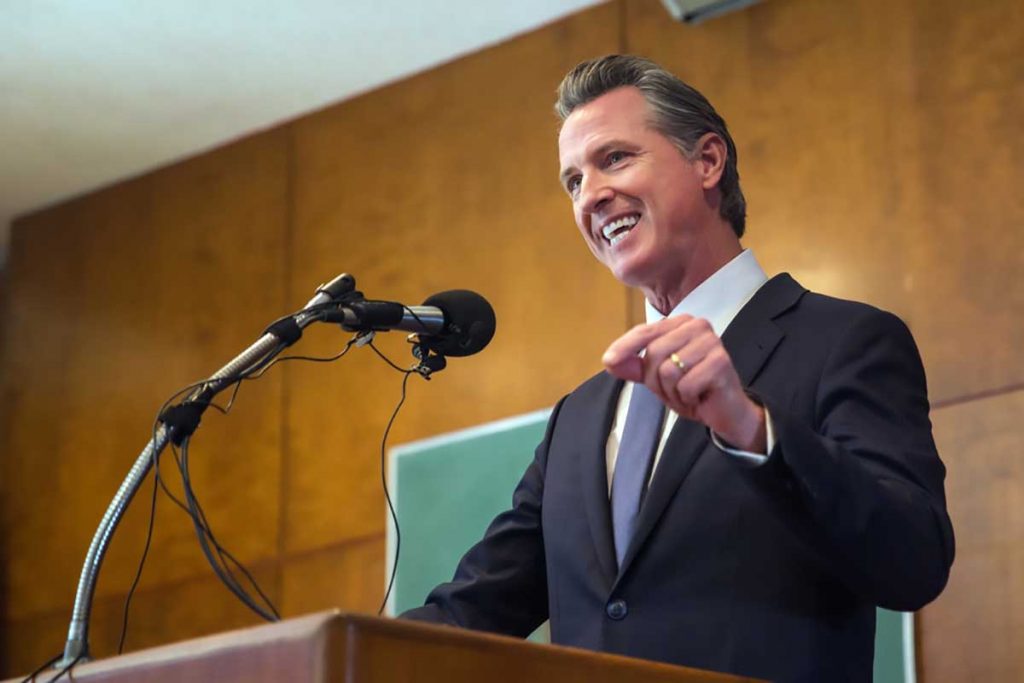
In a statement, Newsom said the bills will raise consumer awareness and promote industry accountability. | Jana Asenbrennerova / Shutterstock
A high-profile bill restricting the use of recyclability labeling on products in California was signed into law this week. Gov. Gavin Newsom also signed legislation classifying mixed-plastic exports out of the state as “disposal.”
Newsom on Oct. 5 signed Senate Bill 343, Assembly Bill 881 and other legislation that advocates had grouped together as a “Circular Economy Package.”
SB 343 enacts stringent criteria producers must meet to use the “chasing arrows” symbol on their plastic packaging in California, as well as other recyclability labeling rules. AB 881 reclassifies mixed plastics exported from the U.S. as “disposal” rather than “recycling,” for the purposes of the state’s recycling requirements. Local programs that see their mixed scrap plastics exported will not be able to count that quantity toward their diversion mandates.
Both bills garnered significant attention throughout the recycling industry. In particular, SB 343 drew the ire of producers nationwide because it creates a situation in which California labeling requirements are different, and sometimes incongruent with, other states’ requirements. For example, some states mandate use of the chasing arrows symbol, but California will restrict use of that symbol.
In a statement, Newsom said the bills will raise consumer awareness and promote industry accountability.
“California’s hallmark is solving problems through innovation, and we’re harnessing that spirit to reduce the waste filling our landfills and generating harmful pollutants driving the climate crisis,” he said. “With today’s action and bold investments to transform our recycling systems, the state continues to lead the way to a more sustainable and resilient future for the planet and all our communities.”
The labeling bill takes effect in 2024, and the exports bill takes effect immediately, although it contains a provision that exports to Canada and Mexico will still count as “recycling” until the beginning of 2024.
Additionally, Newsom signed a bill easing restrictions on recycling centers that are part of the container deposit system, aiming to increase redemption access in the state’s troubled deposit return program.
He also signed legislation modifying compostability labeling laws, requiring manufacturers to provide more information when perfluoroalkyl and polyfluoroalkyl substances (PFAS) are in their products.
More stories about legislation
- NY legislative session ends, again without EPR
- Both coasts see DRS program changes
- UN member countries bring focus to plastic treaty